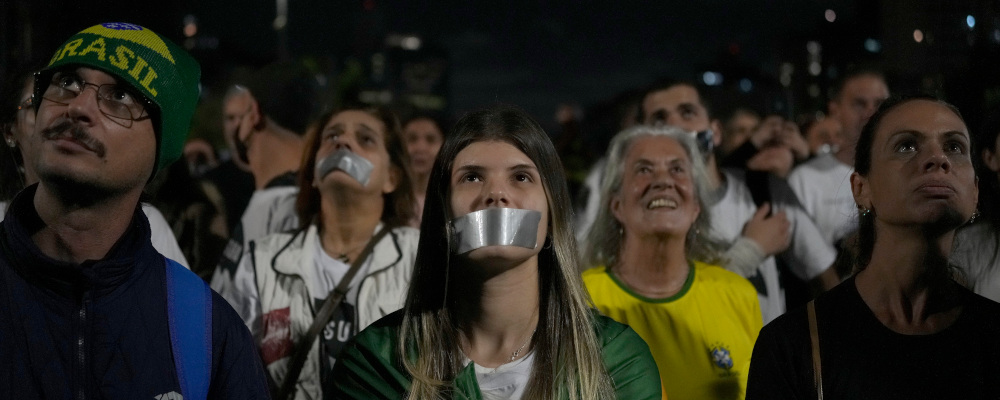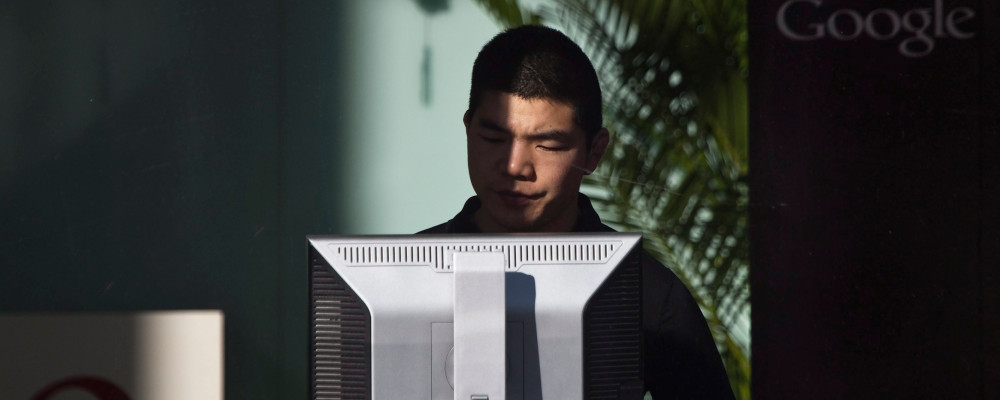Who decides what is true?
Firstly, we’ll skip over postmodernism’s bizarre premise that there is no objective truth. We’ll agree that although experiences may differ, truth does exist. Many truths within our own lives appear self-evident, but how about beyond our lives into the world around us? What about the information we receive—how does one determine what is true here?
The online world provides access to vast droves of information, and we’re now exposed to as much data in a single day as someone in the 15th century would be in their entire lifetime. But, how do we decipher between fact and fiction in this information overload?
It’s important that false or faulty information does not unduly influence the public conversation, and it’s widely accepted that truth is generally preferable to lies. In the past, we could expect news outlets to objectively report the facts, but recent events would suggest either a lack of journalistic integrity or—more concerningly—ideological capture in our mainstream media institutions. The New York Times is no longer the paper of record, reporting Hamas press releases verbatim. The once-great BBC seems to be more interested in teaching about white privilege, and the Associated Press is now the communications arm of the climate change lobby.

Combine this with the fact that social media gives anyone with a smartphone the ability to post information to the masses, alongside the introduction of AI technology with its ability to easily manipulate images and speech, and we have a landscape rife with unpredictability. As the famous quotation goes: “A lie can travel halfway around the world while the truth is still putting on its shoes.”
There are now growing calls to address online “disinformation” and “misinformation.” The UN General Assembly has “expressed concern over the proliferation of disinformation,” whilst everyone from Facebook to the Canadian government has come up with initiatives to “fact check” or stop this content from spreading.
To most people, this probably sounds like a sensible idea, but you don’t have to dig too far to see how insidious it truly is. If history has taught us anything, it’s that any attempt to censor or manipulate the views of a population only ends one way. The first thing the Bolsheviks did in 1917 was take over control of the press—Lenin knew the power of information. When people can not change things, they change the words. Try searching for the 1989 Tiananmen Square massacre in China and you’ll come up blank.
We should be far more worried about attempts to keep us “safe” from untruths than the untruths themselves. Do not trust anyone who uses the words “disinformation” or “misinformation.” What they mean is “opinions that run contrary to mine that I should be allowed to suppress.”
One clear example. In 2020 we were all told that COVID-19 came from a spillover event, potentially from a wet market in Wuhan. Anybody proposing an alternative explanation, say a dreadful accident in the Wuhan Institute of Virology, was immediately regarded as a purveyor of “misinformation” and in some cases, racist. Facebook blocked, purged, and shadow-banned anyone proposing this hypothesis. The mainstream press was all in lockstep that COVID-19 did not come from a lab despite a mountain of evidence, even in the early days. President Biden accused President Donald Trump of fanning racism in his criticism of the Chinese government over the pandemic, and his administration reportedly shut down the State Department investigation into the possible lab origins of the virus. It has since come to light that there is a substantial probability that COVID-19 did, in fact, leak from the Wuhan Institute of Virology. Three years later, the mainstream media and U.S. intelligence sources (specifically including the U.S. Department of Energy) are now reporting this is the likely origin.
The mainstream narrative is clearly not always going to be correct in real-time. But how many lives could have been saved in this instance, or could be saved in the future, if we were allowed independent inquiry? People suffered real consequences because governments and platforms effectively decided that one perspective was the only acceptable one to be expressed.
It is my view that we have to trust people to exercise judgement. This doubtless comes with risks. People will get caught up in the sheer volume of information and believe or convey things that are untrue. The world is flat. Bill Gates caused COVID. Or men can have babies. But that’s the trade-off. A free society relies on a flourishing marketplace of ideas.
You would think that this would give gatekeepers of information cause to reflect and review censorship policies, but the opposite has been the case. They’ve decided that what the world needs is more censorship.

The censorship industrial complex is pervasive and wide-reaching, including in previous “open” channels such as social media (with a few notable exceptions). Consumers are becoming used to a world with fewer dissenting opinions. Dissenting opinions, alternative and independent views, and traditional values are being deconstructed to an alarming degree.
The vast majority of mainstream and digital social channels are beholden to censorship bias from internal and external forces, including Media Matters, NewsGuard, Graphika, and others. It’s hard to find genuine alternative platforms to advertise to an independent audience.
Against all odds, independent media channels are thriving, with consumer ratings in the millions and heavy engagement across multiple platforms, thanks to their alternative offer to the mainstream narrative. However, independent media are what they say—independent—so attempting to secure advertising space for their business would be akin to herding cats.
So where does that leave the companies and brands who want to advertise to this “lost” market? It’s one thing to stand on the sidelines and moan about how the game has been rigged. Maybe it’s time for those of us who care about freedom and truth to step in and change the rules. That’s why I’ve started Uncommon Ad Space, a platform that can bridge the gap between ideology, censorship, and being able to reach your customers in a trusted environment.
This brand-new advertising platform represents a unique opportunity to put brands front and centre before a largely untapped audience of millions of fiercely loyal and independent thinkers. A platform for the de-platformed and for those who care about critical thinking.
Yes, the contest of ideas is messy. But truth is real. We just have to trust that, in the long run, it is a formidable competitor.
Recommended for You

Ginny Roth: J.D. Vance, Pierre Poilievre, and how they slice their economic pie

David Polansky: As President Biden leaves the race, will the Democratic Party hodgepodge hold?

Adam Zivo: No Dr. Bonnie Henry, drug prohibition is not ‘white supremacy’

Peter Menzies: The mainstream media should love Doug Ford, now that he’s subsidizing them









